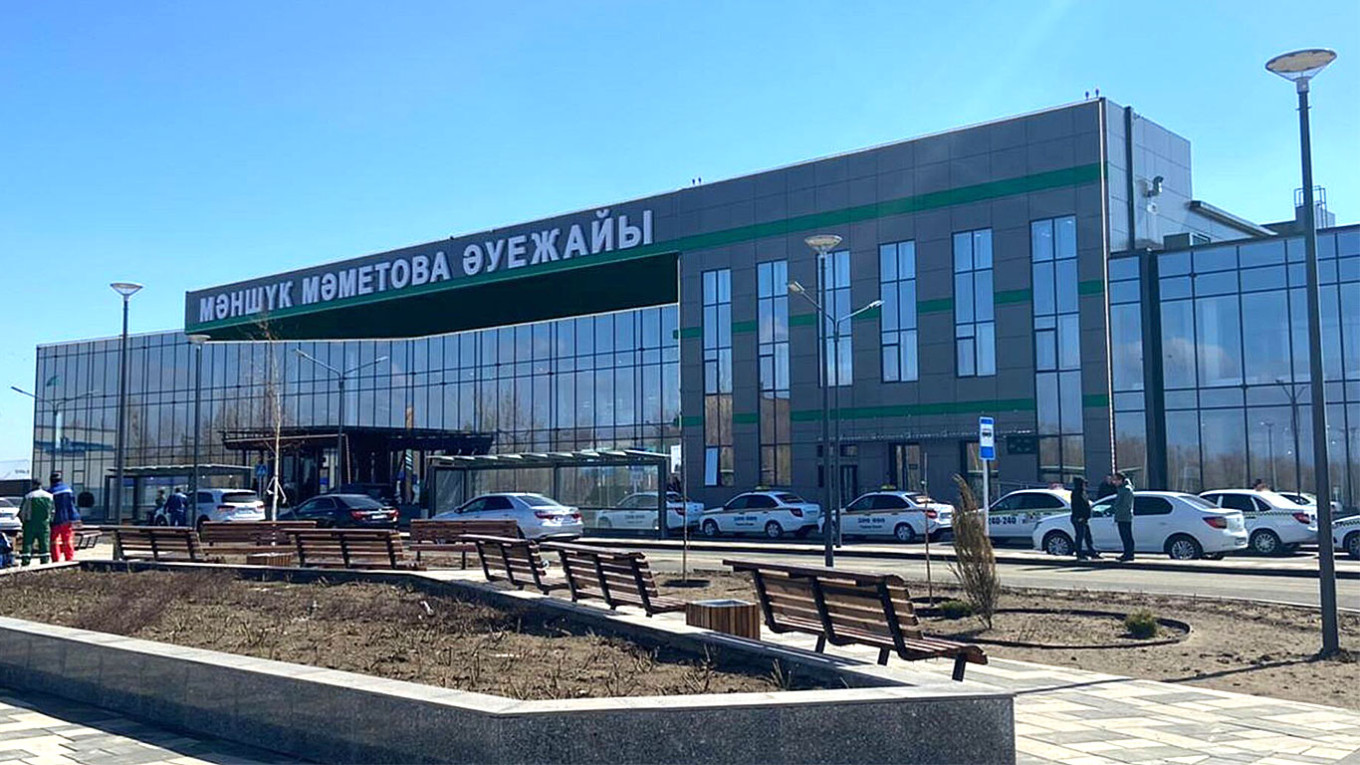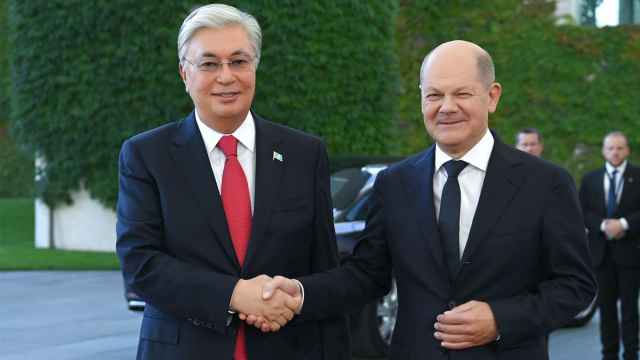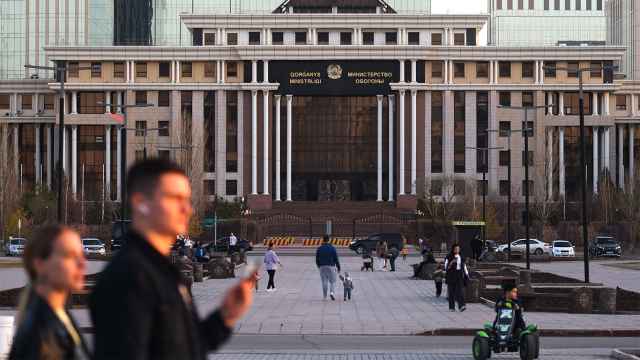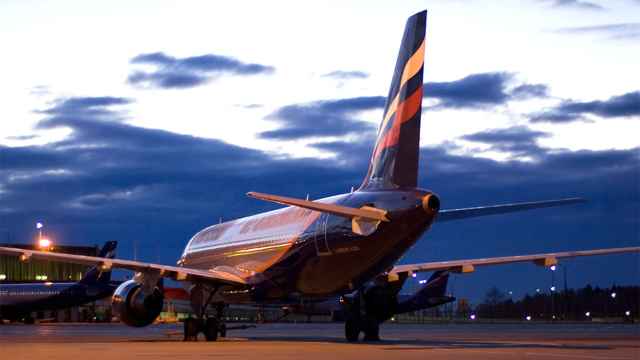A Russian airports operator has bought a stake in running an airport in northwestern Kazakhstan close to the Russo-Kazakh border.
With its first foreign acquisition, Russia’s Airports of Regions company is hoping to develop the Oral airport as a regional hub, most likely to serve travelers affected by the shortage of flights out of Russia owing to its war in Ukraine.
The firm, owned by sanctioned Russian billionaire Viktor Vekselberg, did not specify the price or size of the stake when it announced the acquisition on Feb. 10.
But media in Kazakhstan reported that Kazakh investors will hold a controlling stake of 51% in the consortium, called Oral Airport Holding, while the Russian company holds 49%.
The Kazakh partners are entrepreneur Dauletkhan Kilybayev and a company called Uralsk Management, which is owned by Sergei Artyugin. He also heads the Oral Airport Holding consortium, which will now manage the airport for three years.
Manshuk Mametova Airport will remain the property of the state, which took it over from a company affiliated with Bek Air after that carrier was stripped of its license to operate following a fatal crash in 2019.
The Russian company offered few specifics on the acquisition. But it did say it intends to turn the airport, which currently serves around 300,000 passengers annually, into a regional aviation hub.
“The convenient location of the airport in northwestern Kazakhstan will make it possible to develop transit traffic and create a regional hub on its basis,” explained the company, which runs airports in cities around Russia including Yekaterinburg, Samara, Saratov, Orenburg, Rostov-on-Don, Nizhny Novgorod and Tobolsk.
Oral (sometimes called Uralsk) is around 25 miles from the border with Russia and has direct bus links to Samara, about four hours’ drive north.
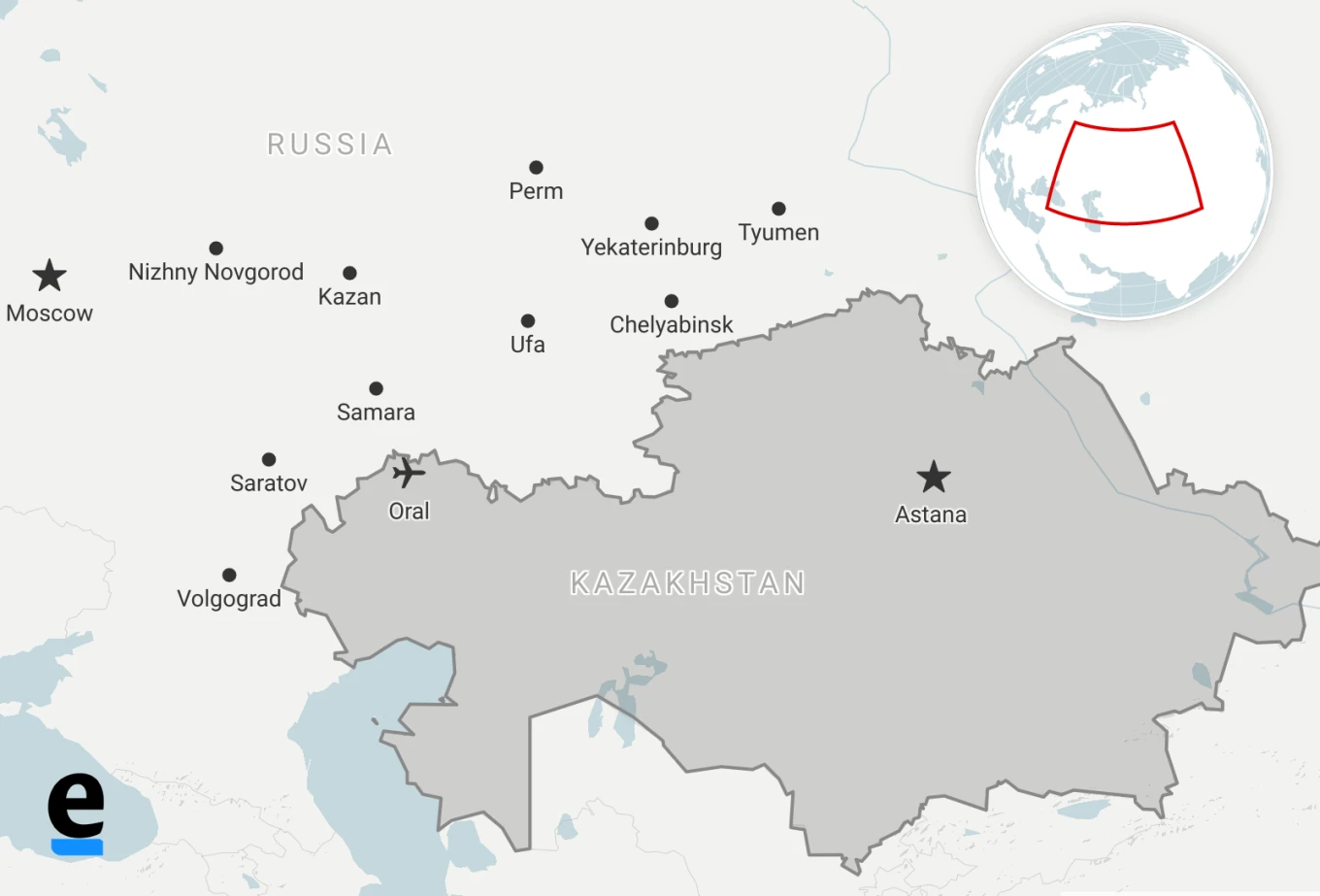
That would make it a relatively convenient hub for travelers from cities in southern Russia and Siberia, currently restricted by a lack of flights because of the war in Ukraine.
Oral’s airport currently serves only Kazakh airlines on mainly domestic routes, with international flights to just two destinations: Phuket in Thailand and Frankfurt in Germany.
The airport has a recently completed new terminal. The investors now plan to sink money into upgrading security equipment and improving passenger and cargo infrastructure.
The involvement of a sanctioned Russian oligarch in the consortium might be bad optics for Astana, which has repeatedly stated that it will never allow Kazakhstan to become a backdoor route for sanctions-dodging by its neighbor and partner Russia.
But Kazakhstan’s government is eager to lure investors to develop airport infrastructure to meet rising demand.
The government has tapped a foundation run by Kazakh oligarch Bulat Utemuratov to fund the construction of a new airport terminal in the city of Kyzylorda in southern Kazakhstan, at a cost of $25 million. Construction is due to begin this month, and the terminal will become the property of the state after it opens next year.
This article was originally published by Eurasianet.org.
A Message from The Moscow Times:
Dear readers,
We are facing unprecedented challenges. Russia's Prosecutor General's Office has designated The Moscow Times as an "undesirable" organization, criminalizing our work and putting our staff at risk of prosecution. This follows our earlier unjust labeling as a "foreign agent."
These actions are direct attempts to silence independent journalism in Russia. The authorities claim our work "discredits the decisions of the Russian leadership." We see things differently: we strive to provide accurate, unbiased reporting on Russia.
We, the journalists of The Moscow Times, refuse to be silenced. But to continue our work, we need your help.
Your support, no matter how small, makes a world of difference. If you can, please support us monthly starting from just $2. It's quick to set up, and every contribution makes a significant impact.
By supporting The Moscow Times, you're defending open, independent journalism in the face of repression. Thank you for standing with us.
Remind me later.


